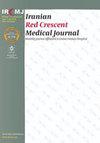术前低蛋白血症与急诊结直肠手术中手术部位感染和吻合口漏的发生
IF 0.2
4区 医学
引用次数: 0
摘要
背景:尽管低白蛋白血症是众所周知的胃肠道手术患者术后并发症(包括手术部位感染 (SSI) 和吻合口漏 (AL))的预测因素,需要在术前进行必要的干预,但在急诊结直肠手术中,术前优化和干预的机会有限。研究目的因此,本研究旨在评估急诊结直肠手术患者术前血清白蛋白水平与 SSI 和 AL 发生之间的关系。研究方法在这项队列研究中,对 17 个月内接受急诊结直肠手术的患者进行了评估。术前测量白蛋白水平,术后随访 1 个月,以确定 SSI 和 AL 的发生情况。结果:共有 173 名患者参与研究,但对 170 名患者进行了数据分析。他们被分为低白蛋白血症组(98 人,占 57.6%)和非低白蛋白血症组(72 人,占 42.4%)。两组患者的平均年龄分别为(57.17±16.19)岁和(51.61±16.14)岁(P=0.028)。4例(2.4%)患者观察到 AL,其中低白蛋白血症组 3 例,非低白蛋白血症组 1 例(P=0.205,相对风险=2.33,95% CI:0.42-12.82)。在 1 个月的随访中,有 13 名患者(7.6%)出现了 SSI,其中 8 名患者(5.1%)为浅表 SSI,5 名患者(3.2%)为深部 SSI。AL 患者的白蛋白水平(2.9±0.48)明显低于非 AL 患者(3.6±0.7 g/dL)。此外,与无 SSI 患者(3.6±0.7 g/dL)相比,有 SSI 患者的白蛋白水平更高(3.11±0.62)。与非低白蛋白血症患者相比,低白蛋白血症患者的 AL 或 SSI 并发症发生率明显更高(P=0.017,Odds Ratio=4.24,95% CI:1.29-13.9)。年龄的调整 OR 为 3.82(95% CI:1.15-12.75,P=0.029);因此,OR 下降 13.5%,表明年龄是一个混杂因素。结论术前低白蛋白血症与急诊结直肠手术后并发症的发生显著相关,年龄较大和术前白蛋白水平较低可作为识别并发症高风险患者的重要指标。本文章由计算机程序翻译,如有差异,请以英文原文为准。
Preoperative Hypoalbuminemia and Development of Surgical Site Infection and Anastomotic Leakage in Emergency Colorectal Surgery
Background: Although hypoalbuminemia is a well-known predictor of postoperative complications, including surgical site infection (SSI) and anastomotic leakage (AL) in gastrointestinal surgery patients, which requires necessary interventions before surgery, there is limited opportunity for preoperative optimization and intervention in emergency colorectal surgeries. Objectives: Therefore, this study aimed to assess the relationship between preoperative serum albumin levels and the development of SSI and AL in emergency colorectal surgery patients. Methods: In this cohort study, patients who underwent emergency colorectal surgery during 17 months, were assessed. Albumin level was measured before surgery, and patients were followed for 1 month after surgery to identify the development of SSI and AL. Results: In total, 173 patients were enrolled in the study, but data analysis was performed on 170 patients. They were divided into hypoalbuminemia group (n=98, 57.6%) and non-hypoalbuminemia group (n=72, 42.4%). The mean ages of patients in each group were 57.17±16.19 and 51.61±16.14 years old, respectively (P=0.028). The AL was observed in 4 (2.4 %) patients; 3 patients in the hypoalbuminemia group and one patient in the non-hypoalbuminemia group (P=0.205, relative risk=2.33, 95% CI: 0.42-12.82). The SSI was observed in 13 patients (7.6%) during the 1-month follow-up; 8 patients (5.1%) had superficial SSI and 5 (3.2%) had deep ones. Albumin level was significantly lower in patients with AL (2.9±0.48), compared to those without AL (3.6±0.7 g/dL). Moreover, albumin level was higher in patients with SSI (3.11±0.62), compared to patients without SSI (3.6±0.7 g/dL). The incidence of complications, either AL or SSI, was significantly higher in hypoalbuminemia patients, compared to non-hypoalbuminemia patients (P=0.017, Odds Ratio=4.24, 95% CI: 1.29-13.9). Adjusted OR for age was 3.82 (95% CI: 1.15-12.75, P=0.029); therefore, a 13.5% reduction in OR indicated that age is a confounding factor. Conclusion: Preoperative hypoalbuminemia was significantly associated with post-development of complications in emergency colorectal surgery and older age and lower preoperative albumin levels may serve as valuable indicators for the identification of patients at higher risk of complications.
求助全文
通过发布文献求助,成功后即可免费获取论文全文。
去求助
来源期刊

Iranian Red Crescent Medical Journal
医学-医学:内科
自引率
0.00%
发文量
0
期刊介绍:
The IRANIAN RED CRESCENT MEDICAL JOURNAL is an international, English language, peer-reviewed journal dealing with general Medicine and Surgery, Disaster Medicine and Health Policy. It is an official Journal of the Iranian Hospital Dubai and is published monthly. The Iranian Red Crescent Medical Journal aims at publishing the high quality materials, both clinical and scientific, on all aspects of Medicine and Surgery
 求助内容:
求助内容: 应助结果提醒方式:
应助结果提醒方式:


